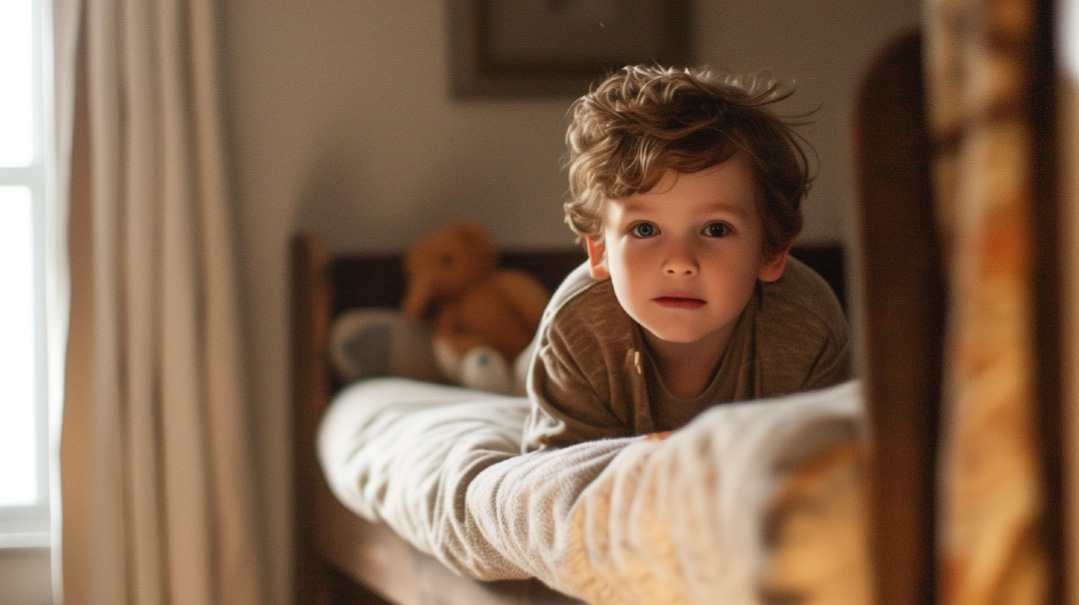Window to His World
| May 7, 2024We were hopeful that his adjustment would be more or less behind him by now. Instead, his problems at school are getting worse, not better

It’s Thursday night, and there’s a lot to get done. Chicken, veggie, side, soup, dishes….Eyeing the pile of dishes on the counter and in the sink, I decide that washing them will have to come first if I’m going to get anything done tonight. It will not be an early bedtime. Is anyone’s bedtime early these days? Oh, well. The cheerful smells of Shabbos coming out of my kitchen will have to wait.
It feels great to be making a full Shabbos again — if not overwhelming. With Yonason flying out to take care of his mother so often, and being involved in her care even when he is home, I’ve been accepting any and all invitations out for a meal. But it will be nice to be home for a change. And we’re having guests. I look at the empty stovetop and full counters. What did I get myself into?
I’m just getting sudsed up when the phone rings. Meir’s English teacher. My stomach tightens. The timing tells me that this can’t be good news. First grade PTA is this week; a nachas report could wait.
I’m right, except it’s worse than I imagined. I hang up disappointed, deflated, drained. Mrs. Schwartz is the sweetest teacher, and although she spoke gently, it was a tough conversation. Before this year, I had never gotten a call like that — Meir had always loved preschool. I have to admit, though, I’m hardly surprised. Meir’s my sweet and sensitive child, bright and curious, but since our move this summer, he’s been moody and aggressive, unpredictable, and… unhappy.
Time takes time, but we were hopeful that his adjustment would be more or less behind him by now. Instead, his problems at school are getting worse, not better. I think back to the shenanigan Mrs. Schwartz described, and I shudder. It did not sound like my Meir.
When he came home today, he slid into the chair beside me as I braided challah. As casually as I could, I asked about his day.
“Good.” He shrugged.
“Only one word? Tell me more,” I teased.
“Tov me’od.” He was tickled by the cleverness of his response. For a boy learning Bereishis, that two-word answer was quite the punchline. I decided not to push it.
But Mrs. Schwartz told a different version of Meir’s day; it climaxed with a stay in the principal’s office. My son!
As I finally attack the dishes, I think of him sleeping peacefully, wishing I could tell him how accepted he is by his new class, how likeable he is when he’s himself. But he’s heard that already; he knows it. He just doesn’t act like he believes it.
Tonight, he’s sharing a room with his younger sister and baby brother. Giving up his room for guests is an exciting chance to sleep on the top bunk. “And do hachnasas orchim,” he’d said as he moved his bedding to their room. At home he is still my thoughtful and gentle boy, and I’m racking my brains as to how we can help him show that part of himself at school, too.
The other kids adjusted pretty smoothly, but Meir has this way of keeping things to himself. It’s hard to know what’s going on in that six-year-old head. I smirk, recalling his “tov me’od.” A response like that can mean a lot… or nothing at all, apparently. I collapse into bed.
After what feels like just a few minutes, I hear the kids through the monitor. Bleary-eyed, I check the time: six thirty. It had been a late night, and I am not ready to start the day.
“Chava Gittel?” It’s Meir’s voice. “Are you up yet?”
She is. I’m just about to mute the volume on the monitor, when I hear Meir’s voice again.
“Chava Gittel, repeat after me: Hashem.”
“Thank you,” she answers.
“No, no,” he says. “Repeat after me: Hashem.”
“I love you,” she offers.
“No!” He sounds impatient. With as much authority as an older brother can muster, he explains. “Repeat after me means that you say what I say after me. Like Tehillim. Okay?”
After a couple of more tries, she gets it, and, in a serious voice, Meir leads Chava Gittel, waiting for her response each time.
“Hashem. Take. Bubbe’s. Cancer. Away.”
I’m awake now. I strain my ears, waiting to hear more. But it’s gone. As they chat about something else entirely, I’m rooted in that moment of their conversation. Hashem just gave me a window into Meir’s world. And his worries. I knew that Ma’s illness affected him, but at six thirty in the morning?
As I sit lost in thought, the conversation with Mrs. Schwartz surfaces. She’s giving him patience and warmth, and now I see how deeply he needs it. More than the move, my son is grappling with something far bigger than he is. He’s missing his bubbe, who is now too weak to come to the phone and schmooze with him, to listen to him read. He’s missing his parents, who try to keep it all positive and free from the pressing worry, but who are obviously falling short. He is hurting.
Oh, Meir my love, Hashem hears every tefillah, especially one as simply pure and trusting as yours. Life has taught you a lot recently. You even know words like cancer, chemo, and surgery…. But there are some things even Abba and I just can’t wrap our minds around. Words like “glioblastoma” and everything that goes along with it. Hashem can do anything, it’s true, and we never know what the future holds, but I don’t know how to explain to you what’s happening — or even if I should.
I quickly get dressed and walk down the hall to the kids’ room. I prepare myself with what I hope looks like a serene and happy expression, and reach for the knob. But before I give a light knock and push the door open, I take a deep breath and glance upward.
Hashem. Please. Take the pain away.
(Originally featured in Family First, Issue 892)
Oops! We could not locate your form.







